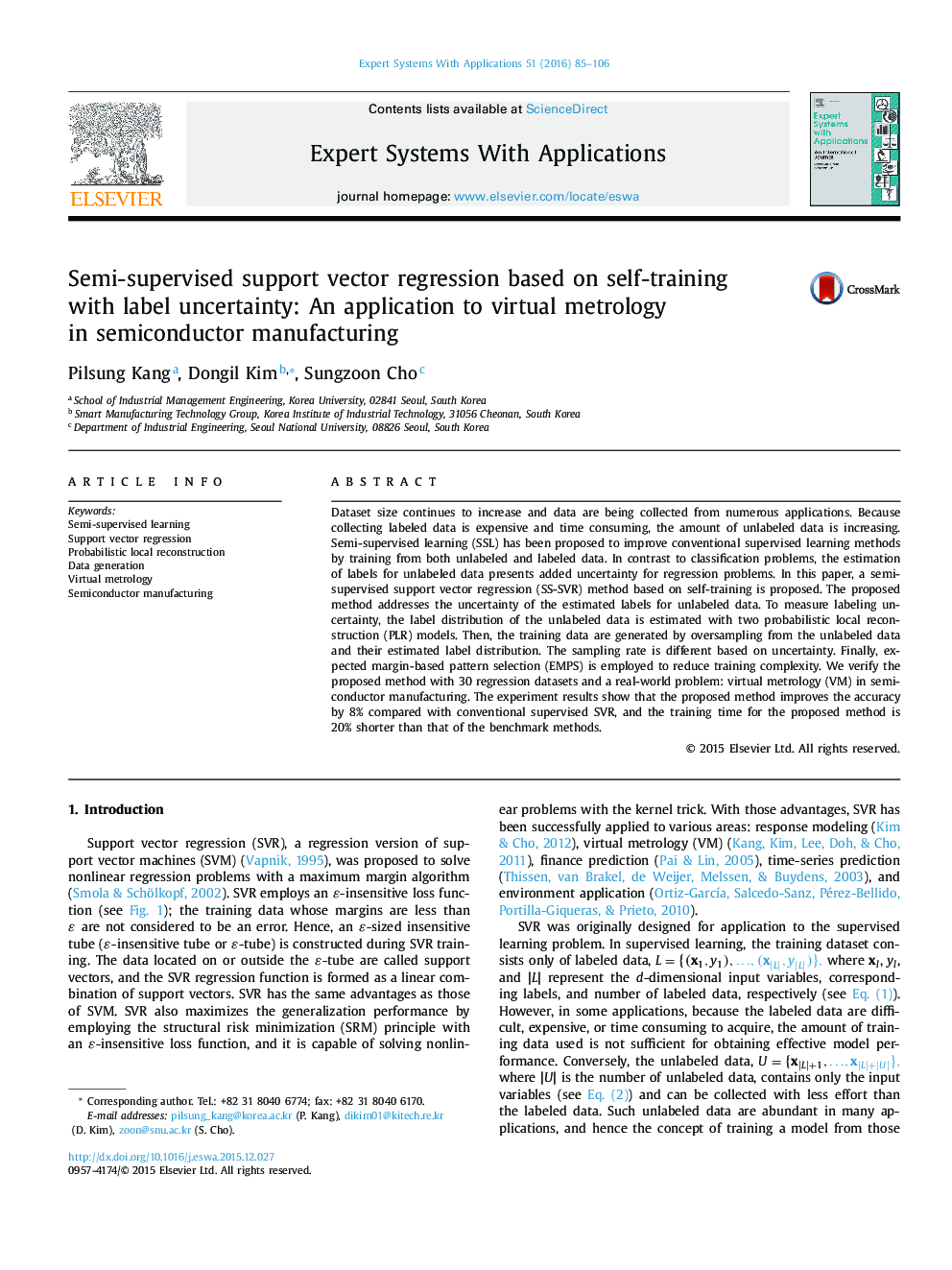| Article ID | Journal | Published Year | Pages | File Type |
|---|---|---|---|---|
| 382148 | Expert Systems with Applications | 2016 | 22 Pages |
•A new semi-supervised support vector regression method is proposed.•Label distribution is estimated by probabilistic local reconstruction algorithm.•Different oversampling rate is used based on uncertainty information.•Expected margin based pattern selection is used to reduce the training complexity.•The proposed method improves the prediction performance with lower time complexity.
Dataset size continues to increase and data are being collected from numerous applications. Because collecting labeled data is expensive and time consuming, the amount of unlabeled data is increasing. Semi-supervised learning (SSL) has been proposed to improve conventional supervised learning methods by training from both unlabeled and labeled data. In contrast to classification problems, the estimation of labels for unlabeled data presents added uncertainty for regression problems. In this paper, a semi-supervised support vector regression (SS-SVR) method based on self-training is proposed. The proposed method addresses the uncertainty of the estimated labels for unlabeled data. To measure labeling uncertainty, the label distribution of the unlabeled data is estimated with two probabilistic local reconstruction (PLR) models. Then, the training data are generated by oversampling from the unlabeled data and their estimated label distribution. The sampling rate is different based on uncertainty. Finally, expected margin-based pattern selection (EMPS) is employed to reduce training complexity. We verify the proposed method with 30 regression datasets and a real-world problem: virtual metrology (VM) in semiconductor manufacturing. The experiment results show that the proposed method improves the accuracy by 8% compared with conventional supervised SVR, and the training time for the proposed method is 20% shorter than that of the benchmark methods.
